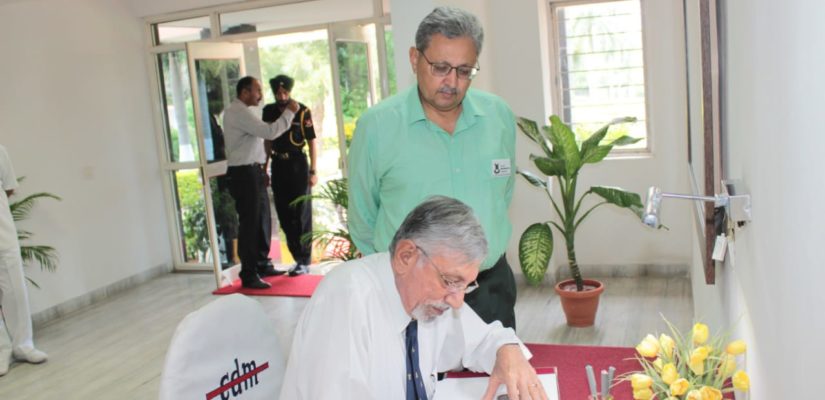
Optimally exploiting the defence budget (English Version) Rakshak News 06 Feb 19
http://www.rakshaknews.com/vishesh/optimally-exploiting-the-defence-budget
Optimally exploiting the defence budget (English Version) Rakshak News 06 Feb 19
The finance minister announced the defence share of the budget at Rs 3.18 Lakh Crore, a marginal increase of 3% over the last year. Percentage wise, this budget at 1.5% of the GDP is even lower than the last, which was 1.6%. This marginal increase would barely cover annual inflation, which is presently pegged at 3.6%. The budget has hiked capital expenditure, meant to purchase hardware and build infrastructure by 10%. Goyal added that additional funds would be made available, in case needed. This statement is the norm. The allocation, like previous years falls way short of requirements.
With elections looming, the priority of the government is clearly to win over the masses. The government is aware that though funds for the armed forces are short, they would never let the nation down. They would meet all challenges with the equipment they hold, while the political leadership would continue to highlight that it has pushed through projects languishing for years under the previous regime.
The finance ministry would continue making promises of meeting defence requirements, as and when they arise. However, funds would always be short despite increasing challenges, desperation to make up shortfalls as also upgrades of obsolete equipment. Shortfall in funds would impact not procurements alone but also infrastructure and maintenance of existing assets.
The inability to clear pending dues for ongoing construction projects including the critical Rafale hangars is impacting even infrastructure construction. As per reports the government owes almost 2,000 crores to the contractors of the Military Engineering Service. Their association has threatened to stop all work, unless dues are cleared. Recent reports also state that the government has shifted 200 crore meant to pay contractors to the HAL, adding to their woes.
For the armed forces, the message is clear. The budget will be low and below expectations. They would need to make modifications to procurement plans to meet their requirements. Deapite the statement by the earlier vice chief of the army, General Sarath Chand, to the parliamentary committee and its subsequent pulling up of the government, there was no impact. On the contrary the government stated that there was no shortage of funds, the reality being the opposite.
In this scenario, the armed forces themselves must consider inhouse and make necessary adjustments. The army, being the largest needs to take the lead. While it desperately needs upgrades and procurements, it would need to prioritize. With its restructuring moving forward, it may need to consider which of its threats need prioritization, China or Pak.
In any case, requirements for troops employed in fighting the proxy war must remain a priority. Equipment including sniper rifles, bullet proof jackets and basic infantry rifles should be procured. Induction of artillery guns would continue, while upgrades and future combat vehicles are still some distance away.
In my opinion, it should consider threat with Pak as a higher priority as unless it continues to maintain a strong conventional edge it is likely to be impacted by Pak’s adventurism. Therefore, action presently underway to procure anti-tank missiles must continue. Simultaneously, it is testing its restructured integrated battle group concept. There would be certain shortfalls which would flow as the validation is confirmed. These should then become a priority for procurement.
On the border with China, infrastructure development, funds for which are separate, should be the emphasis. Similar analysis should be undertaken by the other two services in their quest to maximise their expenditure based on shortfalls in the budget. Without the appointment of a Chief of Defence Staff nor the Permanent Chairman of the Chief’s of Staff Committee, as proposed to the government by the armed forces, this decision would delve with the services themselves.
The era of substantial budgets is on the wane. Forces must change with times and plan to maximise present allocations. In India, governments only wake up on military matters post a crises, Kargil being the last, was two decades ago. Until the next one comes, the government would continue ignoring defence, knowing the armed forces would secure the nation despite shortfalls. Finally, for political parties, votes are more important than national security, hence social schemes would gain more, while national security coming way behind.